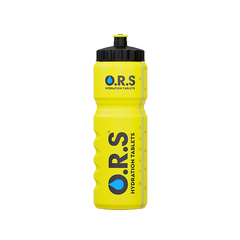Essential Tips For Staying Safe & Hydrated During A Heatwave

It will be June in just a few weeks time, and if recent summers are anything to judge by, the month may bring us several days with very hot temperatures of up to 30°C or even higher. This can make it more challenging to carry out our usual routines of work, exercise, sleep and recreation.
While some people relish the sunshine and warm weather, it can heighten health risks, especially dehydration and associated risks such as heat exhaustion and heatstroke. We can lose up to 1.5 litres of fluid an hour in hot weather, or double this amount if we are exercising.
Sweating is the body’s natural self-cooling mechanism, because as the moisture evaporates off our skin it takes away some of the heat and cools us down. It is not advisable to completely block the process of sweating, because this would increase the risk of heatstroke, which can be very dangerous.
However, if we do not replace the fluids we have lost, it can make us more vulnerable to the unpleasant effects of dehydration. These are not only caused by a lack of water, but also the essential minerals (known as electrolytes) that are present in sweat, including sodium, calcium, magnesium, and potassium. These can be topped up with a tablet if needed.
The most obvious sign of dehydration is a dry mouth and thirst, but it can also lead to tiredness, brain fog, unstable moods, muscle cramps, dizziness, and a rapid heartbeat. That’s why we need to pay extra attention to our hydration levels in hot weather. Here are some useful tips.
Listen to your body
The first step is to understand your individual hydration needs. This will vary depending on your height and weight, gender, age, levels of physical activity, the environment you are in and your natural tendency to perspiration. For example, if you are a well-built and physically active person who is outdoors, you may need to triple your usual hydration levels.
If you are remaining mostly in an air conditioned space and keeping movement to a minimum, you will be less prone to sweating. Listen to your body and carry a bottle of water with you at all times so that you can top up whenever you feel thirsty.
Limit caffeine and alcohol intake
Although caffeinated drinks such as tea and coffee contain fluids, they also act as a diuretic, prompting more frequent trips to the bathroom. Some people are more sensitive to the effects of caffeine than others, so if you know that it has this effect on you, swap it for another drink.
Alcohol rapidly dehydrates the body, so it’s best avoided in very hot weather. If you can’t resist, drink a glass of water straight afterwards to avoid that unpleasant dry mouth and headache that may soon follow.
Explore alternatives to water
If you dislike drinking plain water and do not feel motivated to drink enough during the day, add interest with some freshly squeezed fruit juice or herbal tea. However, try not to switch to sugar laden alternatives such as fizzy drinks or concentrated fruit juices, because high blood sugar can make it harder for the body to absorb and retain fluids.
Foods are also a source of water, especially berries, oranges, grapes, watermelons, cucumbers, and celery. Avoid protein-heavy foods such as red meat, and very spicy food, because these are harder for the body to digest, and can cause our body temperature to rise.
Exercise in the early morning or evening
If you plan to exercise on a very hot day, try to do so early in the morning before the sun has peaked, or in the evening when it is setting and temperatures are cooling off. If possible, exercise indoors or in a shady area such as underneath trees. Low impact exercise such as pilates will reduce sweating.
If you are adamant about sticking to your usual cardio outdoor routine, hydrate well beforehand and listen to your body. The heat places extra strain on the heart, muscles and respiratory system, so even if you are not pushing yourself you can be taking extra risks with your health.
Post-exercise, replenish lost fluids and electrolytes promptly with water and a supplement, or a light well-balanced meal.

